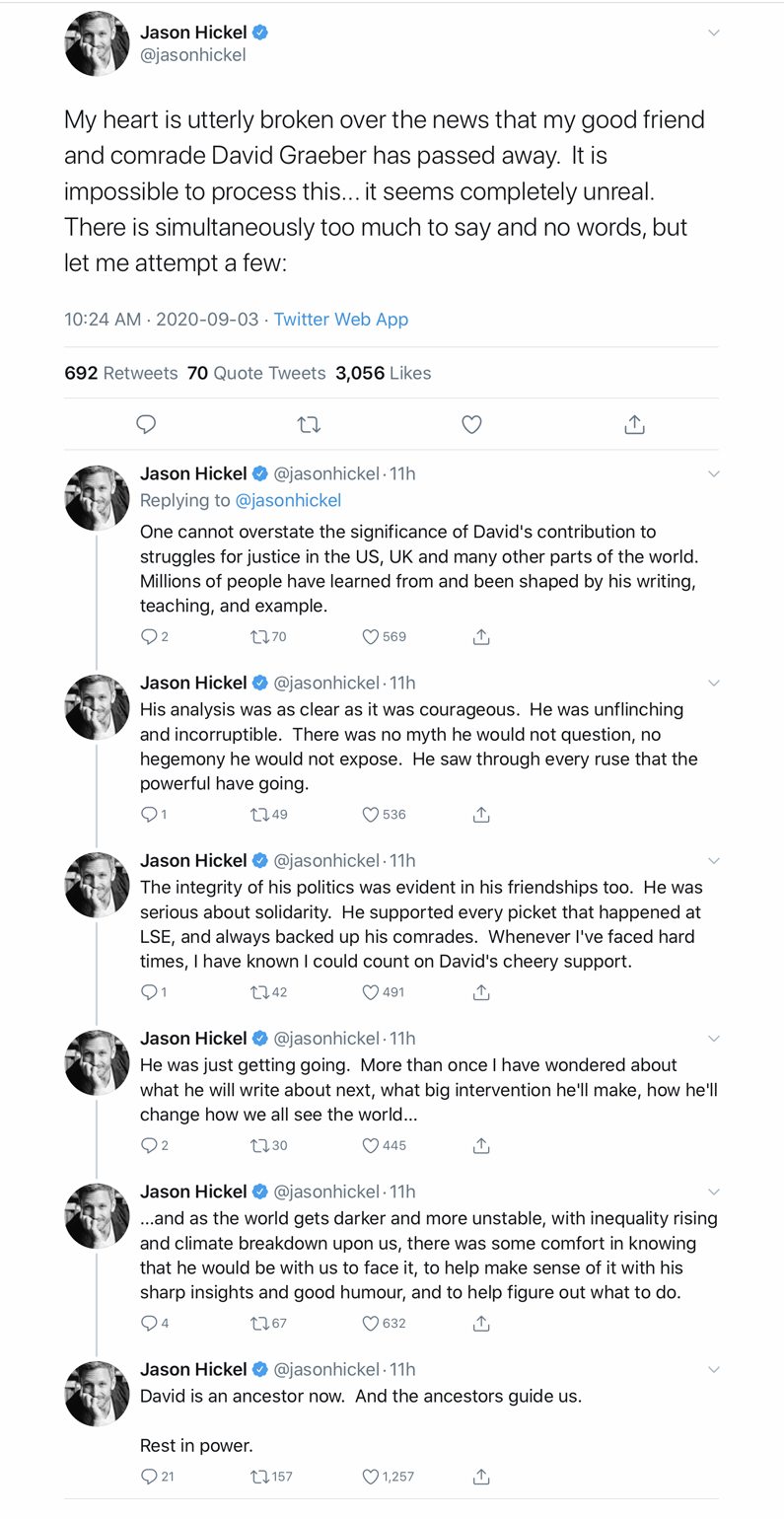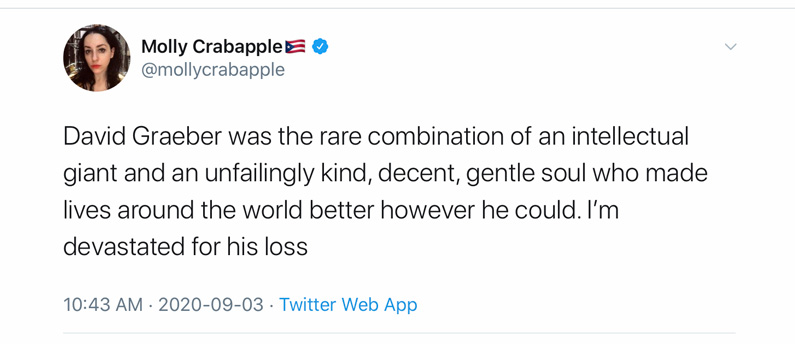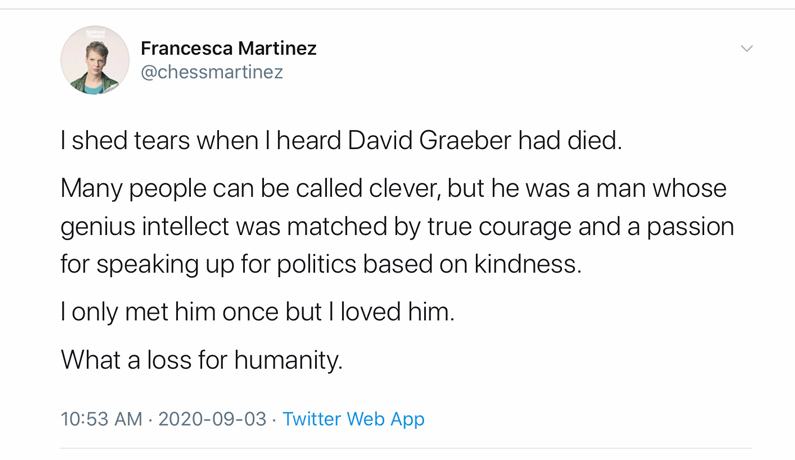David Graeber, the brilliant thinker and activist, passed away on September 2nd. In searching for words to express what that means to those of us who admire his work and humanity, I'm simply putting up the eloquent and precise comments made by Jason Hickel on Twitter, along with a few quotes and comments from others. Also there is this lovely article by Andrej Grubačić, to go along with the many other pieces written in the wake of his sudden absence. (New York Times, New Statesman, New York Review of Books.)
Wishing David was still with us. The incredible independence and brightness of his work remains, however, and it is something to go back to again and again.





Debt cancellation would not only relieve human suffering, it would also remind us that money is not ineffable, that these are human arrangements and that if democracy is going to mean anything, it is the ability to all agree to arrange things in a different way.
The ultimate, hidden truth of the world is that it is something that we make, and could just as easily make differently.
Anarchism is just the way people act when they are free to do as they choose, and when they deal with others who are equally free — and therefore aware of the responsibility to others that entails.
During an interview about Bullshit Jobs: A Theory, David responds to a question about potential future projects by talking about “the revolt of the caring classes,” a moving and instructive idea he wanted to explore further. His words follow, using YouTube’s auto-generated translation, with fixes for mistranslations and edits for clarity. (Full video follows at the end. This portion starts at the 37 minute mark).
I'm interested in the idea of the revolt of the caring classes. This is a concept that I kind of threw out in the book and it comes from my experience of Occupy, that is, that a lot of the people, when you look at the “we are the 99%” tumblr page, are the kind of people who were too busy working to actually take part in the occupations, but wanted to show their support. At one point, I spent two days going through every single testimony on the “we are the 99%” tumblr page we set up, and they were almost all kind of in the caring sector, or what feminists would describe as caring labor: they were either in health or education, or they were in social services—taking care of people in one way or another—and there was this incredible outrage at the fact that, the more your work benefits other people, the less they pay you. So, people are locked into so much debt that if they wanted to do a job where you don't hurt people, and maybe even help them a little, then you're going be so in debt, and you’re going to be so miserable, you can't even take care of your family.
So, this was kind of an outrage, and in fact this is what we've been seeing. As manufacturing productivity goes up, less people are employed, and profits go up. But in health and education it's the opposite: productivity keeps going down because they bulshit-ize it so much, and at the same time, they have to bring more and more people into that sector because productivity is down and because they have to supply the same amount of services. So prices go up—we all know about the rate of healthcare inflation and education inflation—and the only way to create any profitability in this bad situation is to squeeze wages. So, all over the world we're seeing this rebellion of people who are doing care work. In the UK, we have professor strikes or junior doctor strikes. Here in the U.S., of course, we have the teacher strikes all over the place. In France, nursing home workers are going on strike; this has never happened before in French history.
So, that's where people who are sort of the core of the proletariat are now: the working class has become the caring classes, and to some degree, it always was. We have this patriarchal idea of productivity as the big burly guy at the forge, and then the factory worker, but most workers were never that. Most workers were maintaining and taking care of things, taking care of people, animals, plants. So, this is one project I'd like to do: How do we re-imagine value around caring? When people think about their work is having no social value, and therefore being a bullshit job, there's some idea in the back of their minds that real work means taking care of others. I mean, even when you build a bridge, you're building a bridge because you care that people can cross the river. So, I thought, what is a compliment to caring: I think it’s freedom. Insofar as we talk about production and consumption, I think we should talk instead about care and freedom. Care is work which maintains or augments another person's freedom, and freedom is doing things just for its own sake, because it’s like play; play and freedom are very closely related concepts. With caring labour, you think of a mother and a child. Well, a mother takes care of a child so it can grow up, but a mother, in a more immediate sense, takes care of children so they can go out and play, so they can be free and enjoy themselves. And why don't we take that as our basic paradigm for value: care and play, care and freedom. And if we do so, I think we'd have a completely different conception of what's important about our society. And we can build a society—you know, once the drudgery of production is largely automated—[by asking] what are the things we're going to do that are actually valuable, and how do we re-conceive the economy? So, I want to work on that.
Full YouTube video of the interview: